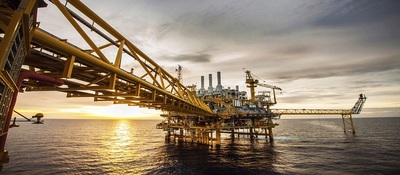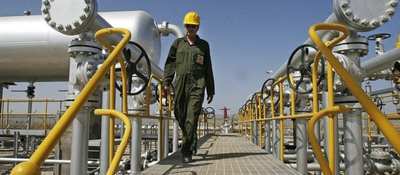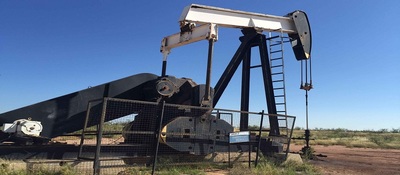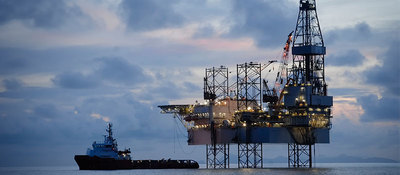
Upstream Petroleum Cost Trends and Benchmarking
INTRODUCTION
Oil & Gas exploration is an industry in constant motion, from technological breakthroughs to shifting supply and demand. The high costs of finding and developing new Oil & Gas fields that can be commercially developed has created a challenging atmosphere, with explorers increasingly seeing low returns, low value and slow progress.
This Upstream Petroleum Cost Trends and Benchmarking training course will explore in-depth some of the cost drivers that impact investments and project CAPEX and OPEX. Rising upstream costs are driving the Oil & Gas industry towards a greater scrutiny on Capital and Operational expenditure; as margins are squeezed with returns down and costs up, there is no question a challenging set of scenarios for the industry lie ahead.
Further this Orbit Horizone training course will help to improve your understanding on the holistic impact of costs on the operations and empower organizations to build strategies for optimizing CAPEX, OPEX, manage risks and build a comprehensive cost discipline strategy with information, analysis and outlook for the complete Oil & Gas value chain through effective benchmarking.
Participants attending the Upstream Petroleum Cost Trends and Benchmarking training course will develop the following competencies:
- Know how to apply a disciplined and structured cost management approach at Upstream Petroleum Value Chain
- Clear characteristics of direct and indirect Cost at Upstream Petroleum Industry
- Understand and interpret rapidly the current cost baseline and trends of Petroleum Industry peers
- Refresher focus to Capital and Operational Efficiency including an ability on rationalizing investment budgets at Upstream Petroleum Industry
WHO SHOULD ATTEND?
- Upstream Petroleum Industry Professionals
- Strategic Players at Upstream Petroleum Industry
- Project and Programme Managers of New Frontiers (Acreage / Blocks / Wells)
- Project Teams
- Cost Champions
- Value Assurance Teams
- Anyone new to or aspiring to enter the Exploration and Production Profession
- Contractors and Suppliers Team involved in E&P
- Senior executives and heads of departments who wants a better understanding of Upstream Cost Drivers, Upstream Supply Chain, Industry Peers Current and Best Practices
- Senior Practitioners requiring refresher and update on recent developments and trends in Upstream Cost Benchmarking practices and Capital Efficiency management
PROGRAMME OBJECTIVES
This Upstream Petroleum Cost Trends and Benchmarking training course aims to enable participants to achieve the following objectives:
- Know how to apply peer-to-peer benchmarking baselines and cost data in the Upstream Petroleum Industry
- Improved ability to identify and categories different types of cost categories and components of the Upstream Petroleum Industry
- Able to benchmark, interpret and analyses the comprehensive cost data that will enable companies to improve drilling programs and completions onshore and offshore including subsea and deep-sea
- Aware of databases on Upstream project market conditions, material and labor costs, assets and equipment prices and availability and other wide range of cost data across the spectrum of upstream projects
- Understand the impact of surgical cost cutting when compared to simply making across-the-board cuts, driving cost efficient upstream E&P
- How to operate the upstream sector in a low price and highly volatile sector environment and understand critically the cost drivers
- Know the latest trends and development in disciplined and structured Cost Management approach at Upstream Petroleum Industry
- Enhancing the cost management maturity level at Upstream Petroleum Industry
TRAINING METHODOLOGY
This Orbit Horizone Upstream Petroleum Cost Trends and Benchmarking training course will combine presentations with engaging and interactive style, practical exercises, supported by video materials, activities and case studies and current peer to peer baseline trends in the Petroleum Industry Value Chain. Delegates will be encouraged to participate actively in relating the principles of Cost Management, Assets Management and Capital Efficiency at Upstream to their day to day job taking a holistic and integrated Cost Management approach.
PROGRAMME SUMMARY
Recent low oil prices have restricted value creation, compounding issues of high costs and greater technical and commercial complexity. Successful Exploration and Production Operators will differentiate themselves from their competitors by optimizing the return from each capital dollar invested.
This Orbit Horizone training course aims to identify and determine the best metric to evaluate performance against your peers and provides opportunities to learn from those in the top quartile, as well as see how others are interpreting current trends and market recovery scenarios and in turn managing their portfolio of assets at upstream more effectively. While each organization may measure capital efficiency in a different manner, baselines and industry level benchmarks have been developed to compare organizations’ capital spending effectiveness at upstream. They provide both qualitative and qualitative insights into an organization’s ability to manage their upstream portfolios to better achieve capital efficiency through structured and well defined cost management approaches.
PROGRAM OUTLINE
Day 1: Exploration Trends and Benchmarking by Basin
- Conventional Exploration Performance and Trends by Basins (worldwide)
- Cost of Exploration compared with the value of new field discoveries
- Exploration spend and key Basins including shallow-water, deep-water
- Opportunity screening through Benchmarking at Basin level
- Investment Decisions – Which regions or sectors are best to Explore
- Discovery and Development costs and full-cycle returns
- Interpreting various Upstream development scenarios – Scenario Analysis (qualitative and quantitative)
Day 2: Streamlining Upstream Operations and How to Realize Savings
- Enhancing early phase cost-estimation with world class project cost estimation
- Improving procurement strategy with historic price time series data and forecasts
- Benchmarking costs and expenditure with industry peers to see where CAPEX and OPEX reduction could be achieved tangibly and meaningfully
- Understanding which development concepts are most or least affected by specific cost and oil price drivers (e.g. platform; tension leg platform; floating production, storage, and offloading vessels; and other structures)
- Assigning activities and resources to all areas of an Asset from maintenance of a single equipment to any corporate overheads with Activity Based Costing (ABC) methodology and other leading and established industry costing and accounting methods
- Improving maturity and experience in Upstream Capital efficiency – how investment dollars can work harder in the Upstream Operations (E&P) and a cost efficient Upstream new development
Day 3: Optimizing Upstream Costs through Improved CAPEX and OPEX Discipline
- Structured and Effective Cost Management discipline
- Improving operational efficiency in field development planning in an era of low oil prices
- Hydrocarbon management and accounting maturity
- The impact of lower oil prices on supply-demand balance and the resulting outlook for onshore and offshore rig and equipment rates globally and regionally
- Enabling step change improvements in Upstream efficiency, productivity, and effectiveness
- Cost Efficiency through Extended Supply Chain at Granular Level to achieve long-term growth, profitability and competitive advantage
Day 4: Upstream Detailed Cost Categories and Components
- Understanding critically the Upstream Operations Supply Chain and Extended Supply Chain
- Upstream Direct and Indirect Cost Categories and Components
- Benchmarking and Baseline with Petroleum Industry Peers Cost – Oilfield Development
- Benchmarking and Baseline with Petroleum Industry Peers Cost and Cost Gaps Analysis – Pipelines
- Benchmarking and Baseline with Petroleum Industry Peers Cost and Cost Gaps Analysis – Surface Facilities
- Benchmarking and Baseline with Petroleum Industry Peers Cost and Cost Gaps Analysis – Water Management
- Gaps Analysis, where, what and how to improve in the Upstream Operations, Cost and Capital Management including how to transfer Cost between various elements
Day 5: Enhancing Upstream Cost and Capital Efficiency
- Future Projects and areas for Cost Reduction
- Sustainable Cost and Capital Efficiency
- Which Cost areas and components that you can adopt from benchmarking against current trends and demands of Petroleum Value Chain
- Suppliers and Contractors Matrix and Scorecard
- Information and Analytics that will enable companies to identify business opportunities and business development
- Integrated Cost Management approach from FEED, FID, E&P activities
| رقم الدورة | التاريخ | تاريخ الانتهاء | عدد الأيام | المكان | الطلبات |
|---|




